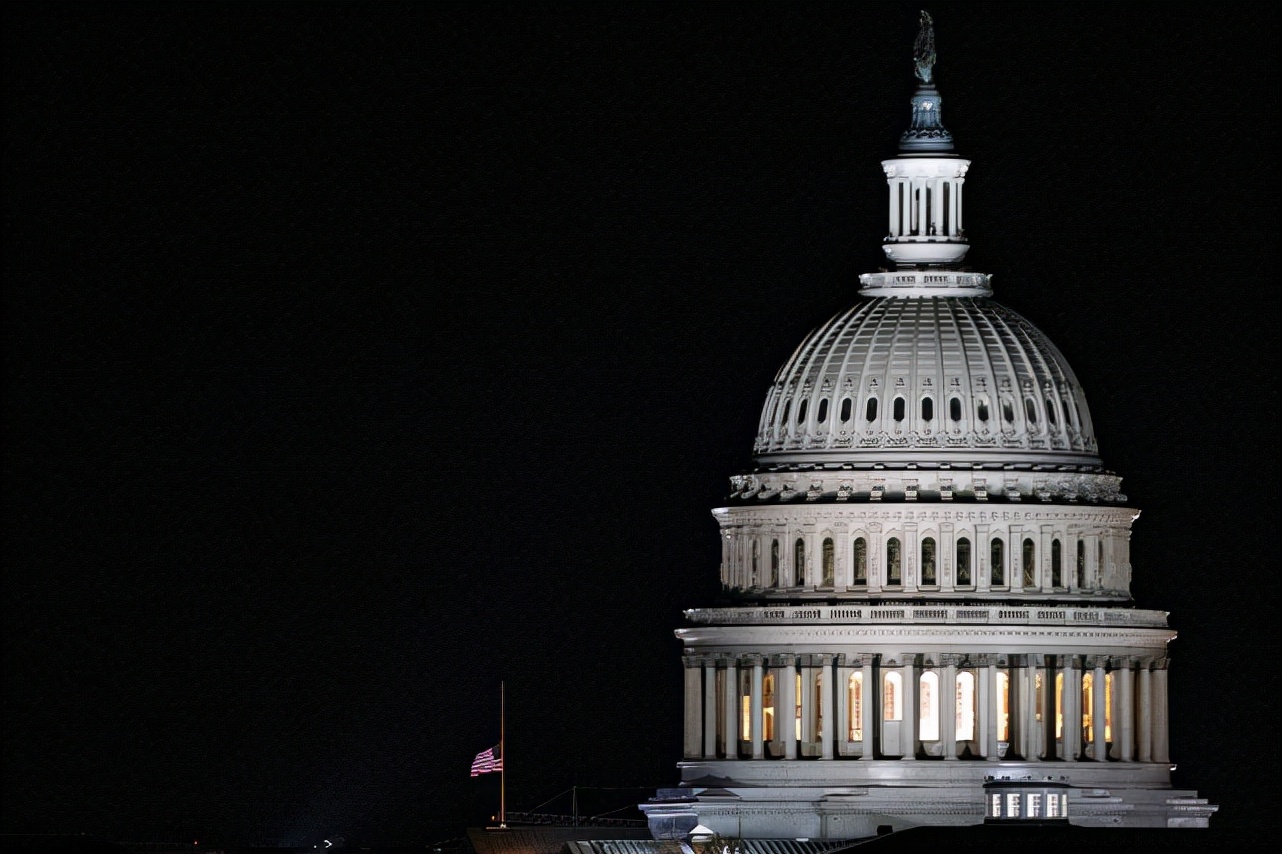On the occasion of the first anniversary of the Biden administration, Rosenberg, senior director of China affairs at the White House National Security Council, made a special exposition on the US China policy on the 19th, saying that the United States will strengthen the deterrence against China in the Taiwan Strait and the Indo-Pacific region to ensure victory in competition with China, while continuing to work hard to manage competition with China, maintain communication channels with China, and set up a guardrail for restricting competition and managing potential risks.

Infographic. Image source: Visual China
We've heard this many times over the past year. "Competition" is a key word that the Biden administration has repeatedly emphasized in its relations with China. U.S. Secretary of State Blinken once proposed the "3Cs" policy, that is, "competition, confrontation, and cooperation." After refinement, the expressions are "responsible competition", "cooperation from the position of strength", "construction of common sense guardrails to avoid conflicts" and so on. In this "3Cs", "cooperation" has been increasingly marginalized, and "competition" has become more and more prominent, occupying the C position. But what exactly does Washington mean by "competition"? We can only see through it more accurately if we combine it with the actual actions of the United States.
Rosenberg revealed that the United States is about to launch a so-called "Indo-Pacific economic framework" with regional partners. Obviously, this "Indo-Pacific economic framework" is aimed at China, trying to pull out a small economic and trade circle that surrounds China but excludes China, aiming to dig the wall of Sino-foreign (including Sino-US) economic and trade cooperation. Rosenberg specifically mentioned the Taiwan Strait, where U.S. actions have continued unabated, as a provocation to China's core interests and continued to undermine the political foundations of Sino-US relations.
Rosenberg also said the United States is committed to working with allies to shape the strategic environment surrounding China. Before the words could be heard, we immediately saw them in action. On the 20th, Japan and France held a "2+2 talks" with foreign ministers and defense ministers; on the 21st, Biden held online consultations with Japanese Prime Minister Fumio Kishida; on the same day, the United Kingdom and Australia held "2+2" talks with foreign ministers and defense ministers. The three events have a common theme, namely "countering China's influence."
We want to ask Washington, is this what is called "responsible competition"? Through the United States' "listening to its words and watching its deeds" in the past two years, it is not difficult for Chinese to draw a judgment: In Washington's heart, confrontation and containment are the essence, cooperation is a stopgap measure, and competition is a discourse trap. The White House has changed its master, but its China policy has changed its soup and not its medicine. President Biden has repeatedly said that he does not want to mess up US-China relations and does not want conflict between the two countries; but the actual actions of the United States are constantly weakening the foundation of Sino-US cooperation and creating and accumulating the risk of Sino-US conflicts.
U.S. officials will always "compete" with China like a treasure gourd hanging on their waists, and almost every occasion they have to take it down to show off, but what kind of medicine is sold in this gourd, they know it in their own hearts, and others can see it clearly. As for the mentality of Americans, former Australian Prime Minister Keating once described it as three points into the wood. He said China's only "original sin" was to become "a country as strong as the United States" and "have the power to become stronger than the United States," which is an "unforgivable sin" for Washington.
In recent years, the United States has abused the concept of national security to suppress Chinese enterprises for no reason, frequently used unilateral long-arm jurisdiction, openly interfered in China's internal affairs on Hong Kong-related, Xinjiang-related, and Taiwan-related issues, and made every effort to stir up Relations between China and other countries. At the same time, Washington has deliberately created a discourse trap, using the neutral word "competition" in the Western context to cover up its hegemonic arbitrariness in suppressing and containing China.
It should be pointed out that the United States has played so many black fists regardless of its identity, and it cannot bring China down or become weaker, but China is steadily becoming stronger. Because Chinese is not intimidating, in history, when we were poor and white, millet plus rifles, we were not afraid of anyone, and now there is no reason to be afraid of any "competition". More importantly, China has no intention of competing with the United States, but pursues continuous surpassing and breaking through itself; China has no strategy of hegemony, only a development strategy, and the goal is to let the people live a good life and realize the people's yearning for a better life. This is something that no one can "contain"!
Rosenberg said U.S. officials "all have a general sense of urgency" to put the United States in the best position to compete. It is certain that if the "win" that the United States "urgently" pursues is China's "defeat", then it will never be achieved. Suppressing the development of other countries and depriving other countries of their legitimate rights and interests under the banner of "competition" is immoral competition and competition with no way out.
Washington should understand that for a great power, the decline of ideas is more dangerous than the decline of power. In the era of multipolarization and globalization in the 21 st century, we still want to rummage through the toolsbox of the Cold War, ponder every day how to contain other countries, pull "small circles," and engage in group confrontation, which will only harm others and harm ourselves, and will eventually be abandoned by the times.
This article is an editorial of the Global Times, and the original title is: What medicine is in the "competition" gourd of the United States